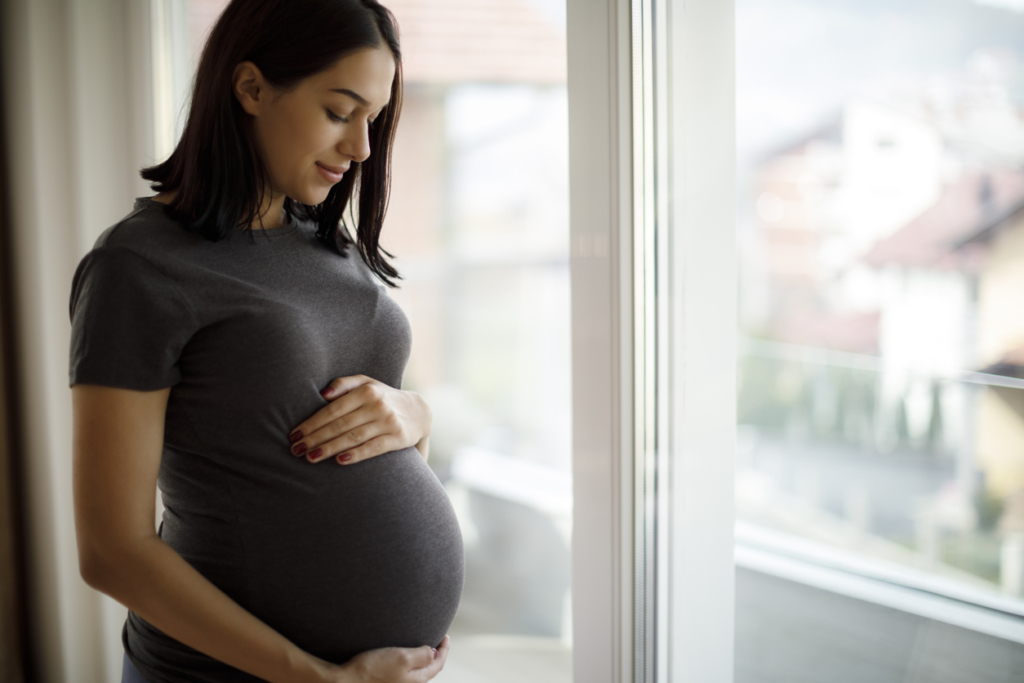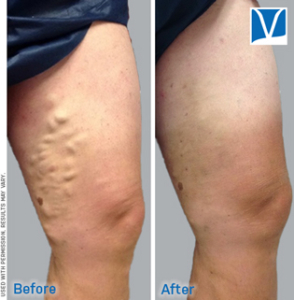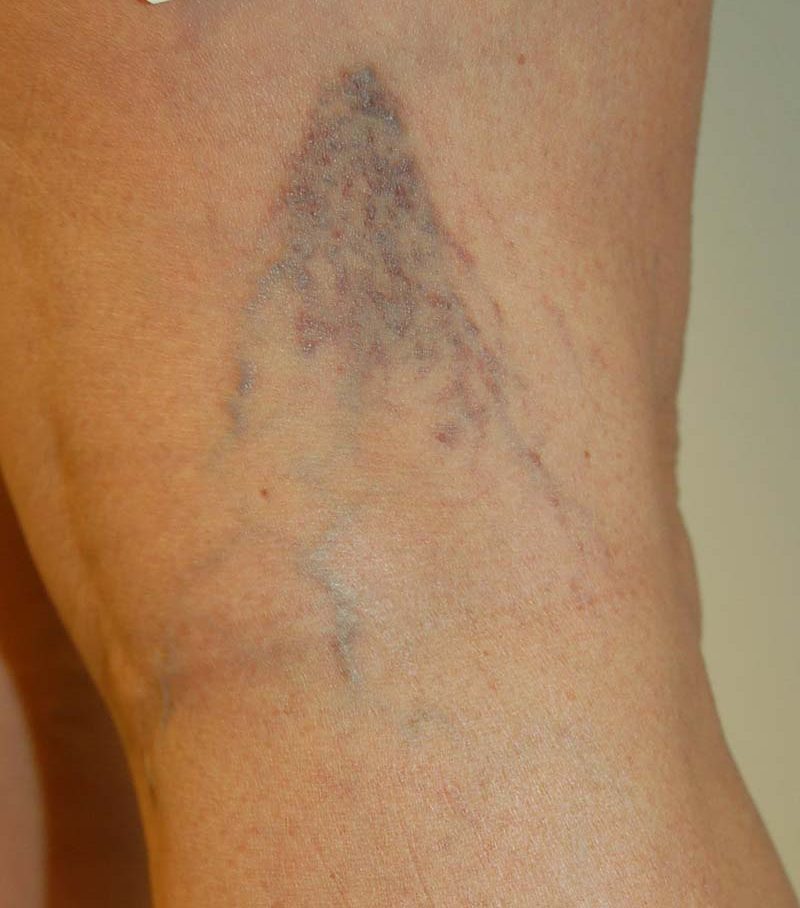
Painful varicose veins during pregnancy are a frequent concern.
Varicose veins occur because there are significant hemodynamic effects of pregnancy on the veins in the pelvis and legs.
Part of this is hormonal, and the other part mechanical. The hormonal effects (high levels of estrogen and progesterone) impact the veins as the pregnancy progresses. Additionally, there are mechanical effects of having pressure on the veins in the pelvis from the uterus. This can lead to pain, ache or throbbing of the varicose veins.
The Latest Evidenced Based Review:

In 7 of 1,000 patients, a blood clot occurred in the deep veins (deep venous thrombosis or DVT) or lungs (pulmonary embolism or PE). Patients with known clotting disorders before the pregnancy may be even at higher risks. These clots can be very serious and require careful monitoring and treatment when they occur.
Diagnosis and Treatment Options:
Treatment options for patients with varicose veins developing or worsening during pregnancy begin with the use of compression hose. Leg movement and elevation are also beneficial in reducing the pressure on the veins. For most patient this can help them get through their pregnancy.

After the pregnancy, if the veins persist, there are options to treat the remaining varicose veins with techniques such as Closurefast and Venaseal, usually at least 3 months after as these approaches are usually not undertaken during or immediately after pregnancy.
In any case where a blood clot is clinically suspected, a diagnostic effort should be initiated by your care providers to determine if a DVT or PE is present. In particular, be on the look out for hard, red, tender, warm surface veins. This can suggest thrombophlebitis. Also watch out for a lot of swelling with leg ache or tenderness. This can signal a DVT. Both require treatment and close monitoring to obtain the best outcomes.
Our General Approach to Pregnancy Varicose Veins:
We generally advise a program of conservative therapy including compression hose, frequent movement, and leg elevation. Then we plan to see them about 3 months after the pregnancy to re-evaluate and discuss treatment options.
If you are interested in learning more about varicose veins treatment options, simply fill out our Online Appointment Request Form or call any of our clinics in Northwest Portland , Tigard, Happy Valley, Hillsboro or Bend, Oregon.
